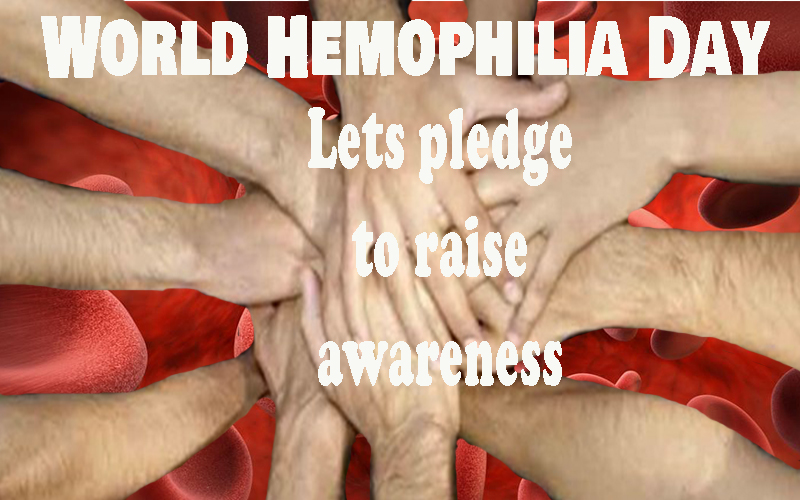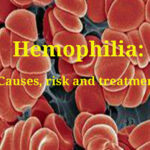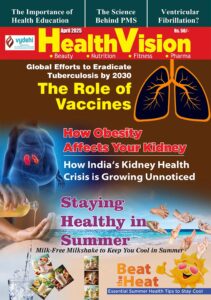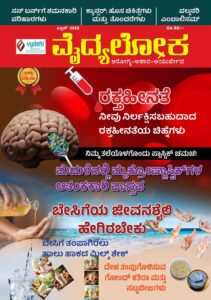World Hemophilia Day: Lets pledge to raise awareness on one of the most under diagnosed rare diseases in India
India has the second highest number of Hemophilia cases in the world. Yet more than 80% Indians with this serious bleeding disorder are not diagnosed and one of the main reasons is lack of awareness and scarcity of diagnostic facilities.
April -17th 2021 – Is accounted as World Hemophilia Day- A rare bleeding disorder. This year’s theme is Adapting to change: Sustaining care for new world.
Understanding Hemophilia
With, more than 2 lakh Hemophiliacs cases, India ranks second on the list of countries with highest number of patients. Hemophilia is an inherited bleeding disorder in which the blood does not clot properly. This happens due to lack of specific kind of protein in the body, called “Clotting Factor”. It can lead to excessive bleeding as well as continuous bleeding following injuries or surgery.
Hemophilia is an inherited bleeding disorder affecting men (women are only carriers) in which the blood does not clot properly. Blood contains many proteins called clotting factors that help stop bleeding.


- Hemophilia A: This type is caused by a lack or decrease of clotting factor VIII.
- Hemophilia B: This type is caused by a lack or decrease of clotting factor IX.
India currently has more than 68,000 cases of Hemophilia A (1 in 10,000 male birth) and over 1,00,000 cases of Hemophilia (including Hemophilia B, vWB & Inhibitors).
Symptoms:
Hemophilia symptoms include excessive bleeding and easy bruising. The severity of symptoms depends on how low the level of clotting factors is in the blood.
- Bleeding can occur externally or internally.
- Any wound, cut, bite, or dental injury can lead to excessive external bleeding.
- Spontaneous nosebleeds are common.
- There may be prolonged or continued bleeding after bleeding previously ceased.
- Signs of excessive internal bleeding include blood in the urine or stools, and large, deep bruises.
- Bleeding can also happen within joints, like knees and elbows, causing them to become swollen, hot to the touch, and painful to move.
- A person with Hemophilia may experience internal bleeding in the brain following a bump on the head.
- Symptoms of brain bleeding can include headaches, vomiting, lethargy, behavioural changes, clumsiness, vision problems, paralysis, and seizures.
The diagnosis includes screening tests and clotting factor tests. Screening tests are blood tests that show if the blood is clotting properly. Clotting factor tests, also called factor assays, are required to diagnose a bleeding disorder. This blood test shows the type of Hemophilia and the severity. Nearly 80 percent of Indians with the serious bleeding disorder are not diagnosed due to the absence of proper diagnostic facilities and lack of adequate coagulation screening facilities.
Emphasizing on accurate and early diagnosis, Dr. Sachin Jadhav, Group Head Haematology & BMT Department, HCG Hospital, Bangalore, said, “Diagnosis for Haemophilia should ideally happen in early childhood. Hence, it’s imperative that the test takes place in specialized centres, as incorrect screening, can lead to failure in detecting or incorrect diagnosis.”
Shedding light on the importance of screening and therapy, Dr. Meera. V – DCH, DNB (Paed), DM (Hematology) Victoria Hospital, Bangalore, said, “Widespread availability and application of screening coagulation tests help diagnose bleeding disorders like Hemophilia early and help to take appropriate precautions and timely treatment. This goes a long way in preventing disability due to repeated bleeds in hemophilia patients. Treatment in Hemophilia is commonly sought when there is a bleed, known as on demand therapy. Prophylaxis is the current gold standard treatment which goes a long way in preventing disability, joint disease and ensures good quality of life. With the ongoing second wave of COVID-19, RICE therapy (Rest, Ice Application, Compression and Limb Elevation) commenced at the earliest hint of a bleed is recommended for home management.”
Spotlighting the recent advances in Hemophilia management, Dr. Cecil Ross, Professor & Head Hematology, St. John’s Medical College Hospital, Bangalore, said, “Hemophilia is a serious bleeding disorder. It causes spontaneous bleeding in joints and muscles; it affects 1 in 10,000 live births that is one in 5,000 live male births. Most of them are crippled by the time they are teenagers. They are treated with factor VIII or factor IX injections. It has to be given through the vein 2-3 times/week throughout their life. This is very difficult especially in children. With recent advances in prophylaxis, PWH have renewed hope of living a significantly better quality of life. Drugs like Emicizumab, and others are given subcutaneously (under the skin) just like insulin, once a week to once a month. It is a lot simpler nowadays, making the lives of PWH free of pain and disability”.
As per Ministry of Health & Family Welfare of India, people with bleeding disorders like Haemophilia can get vaccinated for COVID- 19 under the strict administration of their treating physician. However, those who have moderate to severe disease should premedicate with a clotting factor and seek their physician’s advice before taking the vaccine. Also, PWH should ideally also contact their treatment centres prior for any appointments or if they see symptoms getting aggravated.
While there is no cure for this rare bleeding disorder, it can be effectively managed through regular check-ups and physiotherapy. Physiotherapy has an immense role in treating Hemophilia patients such as pain reduction as well as restoring joint mobility.











